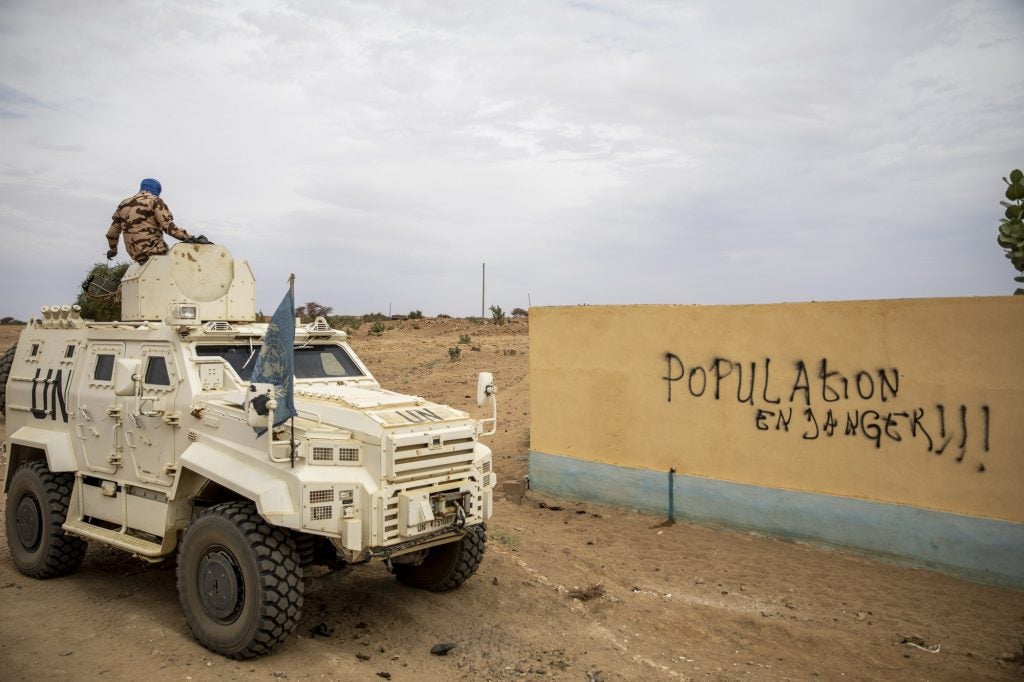Mali Expels UN Peacekeeping Mission Spokesman Over Tweets
The military junta governing Mali announced on Wednesday that it was expelling Olivier Salgado, spokesman for the United Nations Multidimensional Integrated Stabilization Mission in Mali, over a series of tweets he had made regarding the detention of 49 Ivorian soldiers by the Malian military. The spokesman for the UN peacekeeping mission was given 72 hours to depart the country.
The soldiers had been detained on July 10 after arriving by plane at Bamako airport, with the junta accusing them of being “mercenaries” armed with “weapons of war”. Bamako’s accusations have been disputed by the Ivory Coast government, which said on July 12 that they are in Mali “under an agreement signed in July 2019 between Ivory Coast and the United Nations, and in accordance with a security and logistical support contract signed with the Société Sahel Aviation Service (SAS)”.
In a separate statement on Twitter, Salgado said that the Ivorian soldiers were logistical support for one of MINUSMA’s contingents, although not part of MINUSMA proper. He added that the rotation of the logistical support team had been previously communicated to Bamako, stating that MINUSMA was working to facilitate the granting of authorizations to rotate MINUSMA contingents from West African countries.
In the statement announcing Salgado’s expulsion, the Malian foreign ministry said that Salgado’s comments were “tendentious and unacceptable”, accusing him of not having any proof that the Malian authorities had been informed of the arrival of the 49 soldiers.
Following the detention of the Ivorian soldiers, the German government has also accused Malian authorities of “harassment” of German soldiers, after eight soldiers were blocked from boarding a civilian airliner flight departing Mali. On Tuesday, German Defense Minister Christine Lambrecht told reporters that she was “very irritated” by matters including the detention of the Ivorian troops, “ambiguities” around the departure of German troops and Bamako’s questioning of UN peacekeeper rotations. “Before the next rotation, it must be ensured that German soldiers can enter the country and also leave it again”, said Lambrecht.
MINUSMA was formed in 2013, after the Malian government at the time sought help against a rebellion by several Tuareg militias seeking independence or greater autonomy for northern Mali. Despite the signing of peace accords in 2013, the ceasefire collapsed soon afterwards after government troops fired on peaceful protesters, with renewed fighting since then spreading into the greater Sahel region and seeing some militia groups pledge allegiance to the Islamic State.
Relations between MINUSMA and Bamako have steadily worsened since a military coup in 2020, with the military junta that has ruled since seeking the expulsion of the peacekeeping mission and France’s Operation Barkhane. While Paris has since announced the end of Barkhane and the withdrawal of its troops, the junta has taken to blocking rotations of MINUSMA peacekeepers in and out of the country on what it claims to be reasons of “national security”.
In their stead, the Malian military has sought to engage the Wagner private military corporation to confront a surge in violence in the nation’s north. Contractors of the Kremlin-linked private military corporation have been accused of involvement in massacres of civilians since their arrival in Mali, with the French government also accusing Wagner of staging atrocities that were then blamed on French forces.

